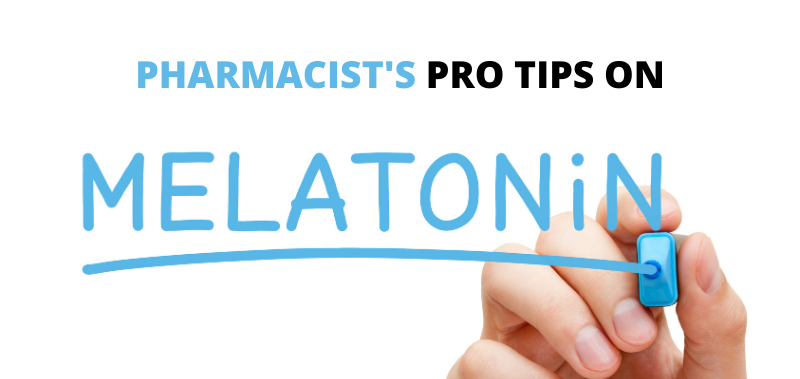August marks the beginning of Back-to-School across the country and the transition from sleeping in to early morning alarms. The start of the 2021-22 school year is unfortunately coinciding with increased spread of COVID-19 Delta variant in many areas of the US. As students return to school, it's essential that families are being active in staying immune strong.
Sleep is a critical component to a strong immune system and according to a Cleveland Clinic study, melatonin may help prevent or treat COVID-19 thanks to its antioxidant and anti-inflammatory effects. "Researchers found that melatonin reduced the likelihood of study participants getting COVID-19 by 28%. Among Black participants — a population disproportionately affected by the disease — infection likelihood was reduced by 52%."
As a pharmacist with expertise in immunology and natural remedies, I am often asked about Melatonin. So I’ve put together a quick list of Top 5 QUESTIONS and ANSWERS ABOUT MELATONIN before you start this powerful remedy.

1. WHAT IS MELATONIN?
Melatonin is a natural hormone primarily that regulates the sleep–wake cycle. The pineal gland will release this hormone in the late evening causing you to feel sleepy and initiate the sleep cycle.
Melatonin levels will reach their peak sometime between 2 am and 4 am.
2. IS MELATONIN SAFE?
Adults:
Melatonin has been used safely for up to 2 years in adults, however, it is not without potential side effects. When using melatonin long term, watch for these side effects:- Headache
- Feelings of depression
- Daytime sleepiness or dizziness
- Stomach cramps
- Irritability
**Do not drive or use machinery for four to five hours after taking melatonin.**
Children:
Melatonin is POSSIBLY SAFE when taken by mouth, short-term. Recommended doses are 3 mg per day in children and 5 mg per day in adolescents. See below for more details on dosing.

3. HOW DOES MELATONIN WORK?
Melatonin's primary function is to help regulate night and day cycles or sleep-wake cycles. Darkness will trigger your body to produce more melatonin and signal the body for sleep. Exposure to light will have the opposite effect and decrease melatonin production. Some people who have trouble sleeping have low levels of melatonin and supplementing with Melatonin tablets can help improve sleep.
4. WHAT IS THE BEST DOSE*?
There are several indications and doses where using Melatonin could be beneficial. I will cover the uses and doses where it has been shown to be the most beneficial. *

5. HOW LONG does it take for MELATONIN to start working?
Melatonin doses of 1-3 mg will take effect in one to two hours to induce sleep. It is best to take melatonin supplements two hours before bedtime.

BONUS: PRO TIPS from your PHARMACIST when taking MELATONIN
It is important to note that Melatonin does not work for everyone and moreover, works best when you practice good sleep hygiene. Here are some of my professional tips I give to my patients when recommending Melatonin.- Tip #1: Prep your mind for bedtime by turning the lights down to a lower level. Melatonin cannot work effectively if you are watching TV or staring at your phone.
- Tip #2: Stop Melatonin if it is not working. If after 1-2 weeks you do not see improvement, stop taking the supplement. There are other supplements that may work better for you.
- Tip #3: Stop using your computer or smartphone —as hard as this is for all of us, if you want a good nights sleep, put the phone down early. Research has shown the blue and green light from these devices neutralize melatonin’s effects.
- Tip #4: Less is more when it comes to taking Melatonin. A dose of 1-3 mg is generally effective for most individuals.
*CONDITIONS OF USE AND IMPORTANT INFORMATION:
This information is meant to supplement, not replace advice from your doctor or healthcare provider and is not meant to cover all possible uses, precautions, interactions or adverse effects. This information may not fit your specific health circumstances. Never delay or disregard seeking professional medical advice from your doctor or other qualified health care provider because of something you have read on this site or published by Hybrid Remedies. You should always speak with your doctor or health care professional before you start, stop, or change any prescribed part of your health care plan or treatment and to determine what course of therapy is right for you.
All content including images are property of Hybrid Remedies and cannot be copied, reproduced, distributed without written consent.
